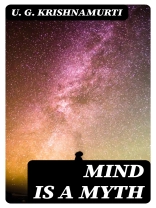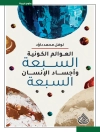In ‘Mind is a Myth, ‘ U. G. Krishnamurti offers a radical examination of human consciousness, dismantling prevailing notions of the mind and selfhood. With a style that is both poetic and incisive, Krishnamurti challenges the reader to confront the conditioning that underpins thought itself. His exploration transcends traditional philosophical paradigms, drawing upon aspects of Eastern philosophies while rigorously critiquing their foundations. The text defies categorization, oscillating between philosophy, psychology, and spiritual discourse, aiming to awaken an understanding beyond the conceptual confines of the mind. U. G. Krishnamurti, often seen as a maverick thinker, draws from his own experiences of disillusionment with established spiritual traditions and intellectual thought. Having once been considered a disciple of a prominent spiritual leader, Krishnamurti’s journey led him to articulate a distinct viewpoint on the non-existence of the ‘self’ as a separable entity. His insights are steeped in a deep sense of personal inquiry, resembling that of a modern-day sage guiding readers towards a profound realization of existence uncolored by mental constructs. ‘Mind is a Myth’ is an essential read for anyone intrigued by the complexities of consciousness and the illusions of identity. This book invites you to dismantle preconceptions and embark on a transformative intellectual journey. By engaging with Krishnamurti’s revolutionary ideas, readers will find themselves encouraged to cultivate a direct encounter with reality, free from mental distractions.
Mengenai Pengarang
Uppaluri Gopala Krishnamurti, known as U. G. Krishnamurti or simply U.G., was an Indian speaker and philosopher, often referred to as an ‘anti-guru’ due to his rejection of traditional spiritual systems and his assertion that enlightenment was a fiction. Born on July 9, 1918, in Machilipatnam, Andhra Pradesh, and raised in the cultural milieu of post-colonial India, U.G. underwent a transformative experience in his 49th year, leading to the dissolution of his personal identity and the formulations of his ‘natural state’ concept. His unconventional teachings emphasized the futility of seeking spiritual or psychological enlightenment through traditional practices and beliefs, which he believed were part of the structure of thought that humans must transcend. U.G.’s book ‘Mind is a Myth’ is a critical examination of collective thoughts and the function of the mind. In this work, U.G. challenges the foundational notions that underline much of classical and contemporary spirituality and psychology. His literary style is characterized by a blunt, direct, and sometimes unsettling approach that cuts through pretense and challenges the reader to confront their own beliefs. He maintained that the pursuit of spiritual goals through the mind is inherently self-defeating, offering an alternative perspective that moves beyond the mind-based paradigms that define conventional understanding (Krishnamurti, 1988).












